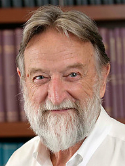Radiation-associated breast cancer and gonadal hormone exposure: A report from the Childhood Cancer Survivor Study Journal Article
| Authors: | Moskowitz, C. S.; Chou, J. F.; Sklar, C. A.; Barnea, D.; Ronckers, C. M.; Friedman, D. N.; Neglia, J. P.; Turcotte, L.; Howell, R. M.; Henderson, T. O.; Armstrong, G. T.; Leisenring, W. M.; Robison, L. L.; van Leeuwen, F. E.; Pike, M. C.; Oeffinger, K. C. |
| Article Title: | Radiation-associated breast cancer and gonadal hormone exposure: A report from the Childhood Cancer Survivor Study |
| Abstract: | Background:The relationship between hormone exposure and breast cancer risk in women treated with chest radiotherapy for childhood cancer is uncertain.Methods:Participants included 1108 females from the Childhood Cancer Survivor Study who were diagnosed with childhood cancer 1970-1986, treated with chest radiotherapy, and survived to ages © 3/420 years. Hazard ratios (HRs) and 95% confidence intervals (CIs) from Cox models adjusted for chest radiation field, delivered dose, anthracycline exposure, and age at childhood cancer estimated risk.Results:Among 195 women diagnosed with breast cancer, 102 tumours were oestrogen-receptor positive (ER+). Breast cancer risk increased with 3/410 years of ovarian function after chest radiotherapy vs <10 years (HR=2.89, CI 1.56-5.53) and for radiotherapy given within 1 year of menarche vs >1 year from menarche (HR=1.80, CI 1.19-2.72). Risk decreased with decreasing age at menopause (P trend =0.014). Risk factors did not differ for ER+ breast cancer. Survivors with an age at menopause <20 years treated with hormone therapy had a lower breast cancer risk than premenopausal survivors (HR=0.47, CI 0.23-0.94).Conclusions:Endogenous hormones are key contributors to breast cancer observed among childhood cancer survivors. Hormone therapy given for premature ovarian insufficiency does not fully replace the function that endogenous hormones have in breast cancer development. © 2017 Cancer Research UK. All rights reserved. |
| Keywords: | adolescent; adult; cancer chemotherapy; cancer survival; child; preschool child; school child; middle aged; major clinical study; genetics; cancer radiotherapy; radiation dose; follow up; breast cancer; radiotherapy; cohort analysis; risk factors; pathology; breast neoplasms; retrospective study; risk factor; childhood cancer; radiation exposure; survivor; late effects; menarche; survivors; infant; neoplasms, radiation-induced; newborn; radiation hazard; anthracycline; menopause; sex hormone; radiation field; reproductive toxicity; longitudinal study; hormone substitution; adverse effects; hormone replacement therapy; radiation induced neoplasm; thorax; estrogen receptor alpha; ovary function; childhood cancer survivor; pediatric malignancy; second malignancies; estrogen receptor positive breast cancer; human epidermal growth factor receptor 2 positive breast cancer; humans; human; female; priority journal; article; estrogen receptor alpha, human; supradiaphragmatic radiotherapy; progesterone receptor positive breast cancer; gonadal hormones |
| Journal Title: | British Journal of Cancer |
| Volume: | 117 |
| Issue: | 2 |
| ISSN: | 0007-0920 |
| Publisher: | Nature Publishing Group |
| Date Published: | 2017-07-11 |
| Start Page: | 290 |
| End Page: | 299 |
| Language: | English |
| DOI: | 10.1038/bjc.2017.169 |
| PUBMED: | 28632729 |
| PROVIDER: | scopus |
| PMCID: | PMC5520518 |
| DOI/URL: | |
| Notes: | Article -- Export Date: 5 September 2017 -- Source: Scopus |
Altmetric
Citation Impact
BMJ Impact Analytics
Related MSK Work








